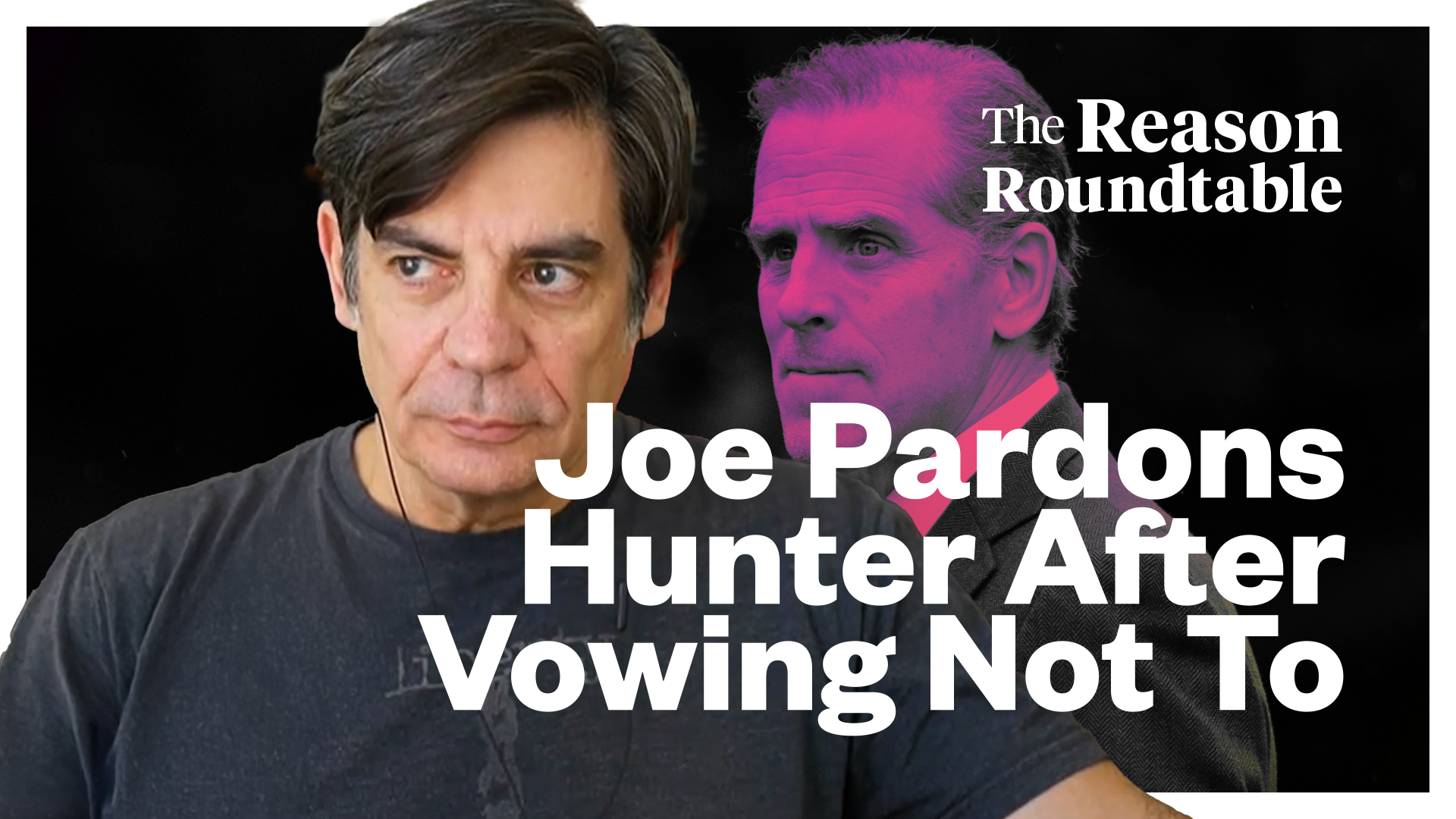Biden’s Ultimate Disrespect to Our Intelligence
In the latest episode of The Reason Roundtable, the conversation among editors Matt Welch, Katherine Mangu-Ward, Nick Gillespie, and Peter Suderman revolves around two significant political developments in the U.S.: President Joe Biden’s pardon of his son Hunter Biden and President-elect Donald Trump’s nomination of Kash Patel as the new FBI Director. These events reflect contrasting approaches to power and justice in contemporary American politics. The podcast delves into the implications of Biden’s decision, particularly regarding public perception of accountability and fairness in the justice system, as well as the broader societal issues around familial privilege and the conduct of political figures.
The editors discuss the significance of President Biden’s pardon of Hunter Biden, which raises complex questions about legal ethics, political favoritism, and potential precedents for future cases. The pardon has been met with mixed reactions, highlighting the dichotomy of opinions surrounding the Biden family and their involvement in various allegations. Supporters might argue the pardon serves as a necessary act of familial support, while critics may view it as yet another example of a political elite using their power to escape the consequences of their actions. This situation also draws parallels to past pardons issued by former President Donald Trump, which consistently aimed to benefit close associates and allies, illustrating a pattern of self-preservation in political actions.
In tandem with the pardon discussion, Kash Patel’s nomination to lead the FBI under Trump’s administration is examined. Patel, known for his controversial stances, particularly regarding the FBI’s involvement in the investigation of Trump’s 2016 campaign, highlights the stark political divisions within law enforcement. The selection of a figure like Patel raises questions about the future direction of the FBI and its relationship with the executive branch. The editors reflect on whether this nomination signals a shift towards a more politicized law enforcement agency, one that could jeopardize the institution’s credibility and impartiality in fulfilling its duties.
The conversation then shifts to a weekly listener question segment, where the editors address a topic raised by their audience. This interaction enables the Roundtable team to engage with the listeners directly, ensuring that their discussions are not only introspective but also reflective of broader public sentiments. The mix of political analysis coupled with listener inquiries feeds into the ongoing narrative of a politically aware citizenry that desires to understand the implications of government action and policy decisions on everyday life.
In addition to political discussions, the editors also touch upon cultural recommendations, suggesting that even in a turbulent political climate, art, literature, and cinema can offer valuable insights and reflections. By analyzing cultural works, the editors contend that they can find avenues to understand human behavior and societal challenges better. The juxtaposition of cultural commentary with political discourse enriches the Roundtable conversation, illustrating how intertwined and influential these realms are in shaping public perception and policy issues.
Finally, the episode serves as a reminder of the constant flux in both politics and culture, urging listeners to remain informed and engaged. The podcast emphasizes the importance of seeking clarity in the often overwhelming landscape of political narratives and news. The editors advocate for a rational approach to understanding the implications of actions taken by political figures, urging careful consideration of the broader implications of pardons, nominations, and political decisions, and how they affect the fabric of American democracy. Through their discussions, they aim to imbue their audience with a sense of agency and awareness in navigating this complex terrain.
Share this content:












Post Comment